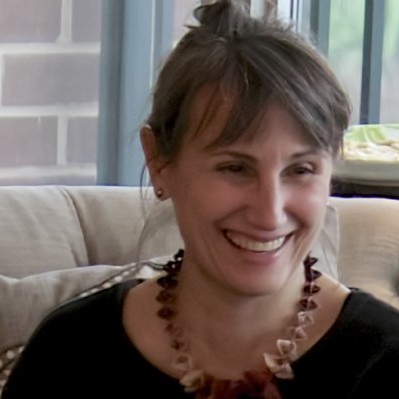Adjustment Issues
Adjusting to new situations can be challenging. Work transitions, relationship changes, moving to a new place, life cycle transition - each requires a certain amount of adaptation. Sometimes, however, it can feel more like a setback. When working on adjustment issues, my approach is to understand what the client may be "holding onto" (and why), as well as his or her strengths. I acknowledge the work the client has done so far, help the client to accept "what is" and work collaboratively to consider new possibilities. Often, a few small changes can make a big difference.
Anxiety
Anxiety can be debilitating. Chronic anxiety may be accompanied by other difficult sensations such as depression, powerlessness, anger, or inability to focus. Or it may be expressed primarily as a physical symptom (GI distress, hypertension, insomnia). Therapy provides a safe and supportive space for exploration and sorting through the complexity. Symptom relief can come from insight (identifying a root cause) or learning new ways to respond to specific situations. A variety of therapeutic approaches may be helpful, including psychodynamic and cognitive-behavioral (particularly for panic attack / disorder). Mindfulness-based awareness practice can also be very effective, whether integrated gradually into supportive therapies, or taught in a structured format.
Relationship Issues
Relationship issues can be opportunities for growth, a natural part of the human experience. For relationship issues in general, I emphasize healthy boundaries, excellent communication skills, and empowerment. For couples in particular, I explore individual needs; very often there is a need to re-establish emotional intimacy so that conflict resolution and decision-making can take place. Specific interventions may include active listening, self-soothing, emotional attunement (turning toward, rather than away), being-with, expressing gratitude, and creation of shared meaning. In some cases, a solution-focused approach (short-term therapy building on existing strengths) can be helpful.
Substance Abuse
People who are struggling with substance abuse or addiction often feel "broken" or "fragmented." Stopping the substance use is absolutely necessary, but it is only the first step. Recovery is about becoming whole. The long term goal is reintegration of body, mind and spirit. The process involves strength through connection, repair through relationship, acceptance of what is ("living life on life's terms") and willingness to grow. When working with recovering individuals or family members, I emphasize self-care, mindfulness, letting go (detachment), "filling in" with new behaviors (based on one's values), healthy relationship skills, and the importance of community (active joining vs. isolating).
Trauma
Trauma that is not processed in a healthy way becomes "frozen" in the mind and body. It can feel as though time has stopped. The survivor may "scan for safety" in neutral situations, or shut down completely in the presence of triggers. It may be very difficult to know one's self, let alone talk about all the feelings associated with trauma. When working with a trauma survivor, my first goal is to co-create a safe space. We work slowly; the client always sets the pace. We talk about how trauma is stored and then re-experienced in the body. We learn and practice basic coping skills. As the client feels increasingly grounded, we turn our attention to the unspoken story. We give voice, we give witness, and we honor what the client has done to get this point. We consider various ways of teaching family and friends how to be supportive. Finally, we focus on reconnecting and integrating one's healthy self with community.
Women's Issues
Women's issues cover a broad range. They may include balancing of power within relationship, finding one's own voice, dealing with stereotypes, sexism, oppression, abusive relationships, or intimate partner violence. They may also include transitions between roles and phases of life (career, family, motherhood, gender-based roles, separations, grief and loss, new beginnings). My training in feminist and relational therapy influences my work with women who are seeking to develop new strengths and opportunities.
Education
Northwestern University
License
License No. 178.011404
Years in practice
9 years

 Verified |
Licensed in IL
Verified |
Licensed in IL
 708-949-8688
708-949-8688
